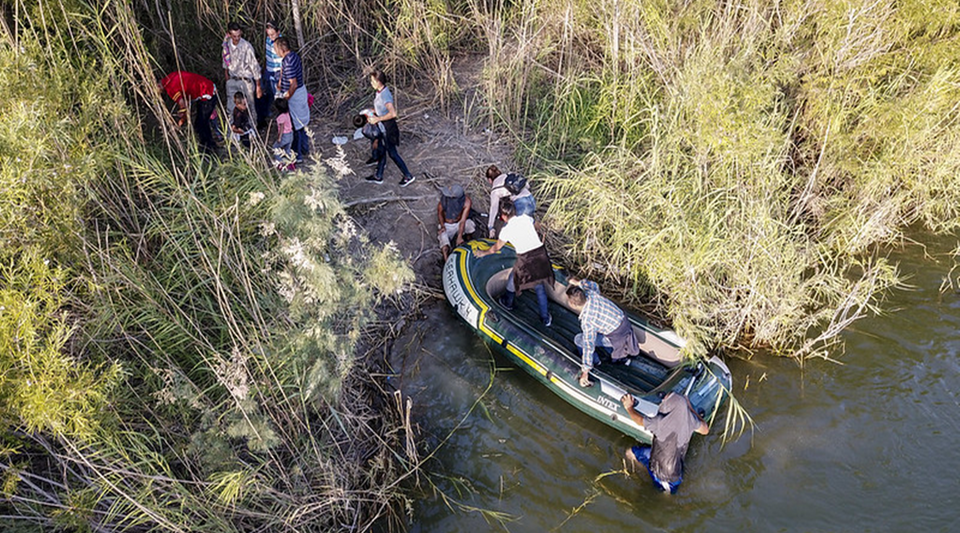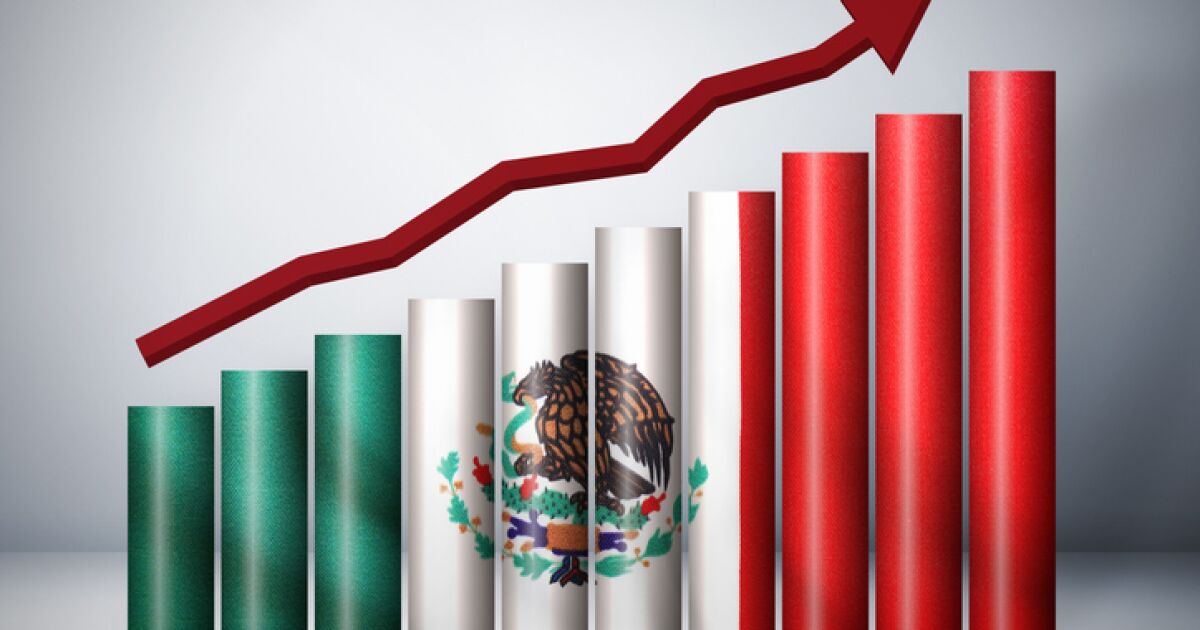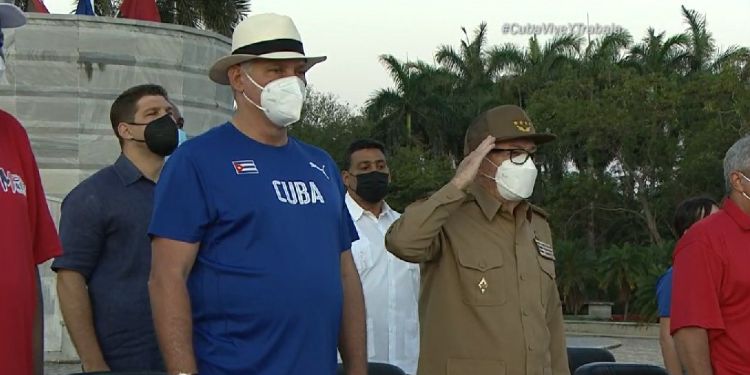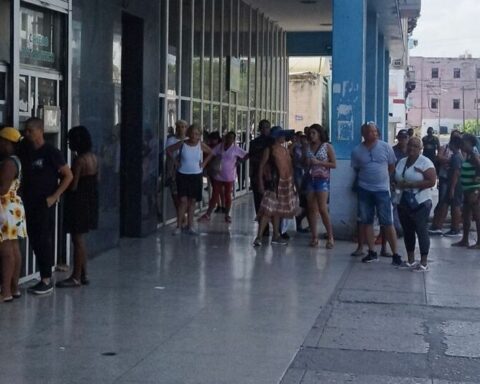In that thicket we were very afraid. We didn’t know what was going to happen, we didn’t have phones, the helicopters were passing by. If they saw us, we had to run, but… there was nowhere to run. We were there for three or four hours. I wrote with a toothpick on a nopal leaf “homeland and life” and painted a little Cuban flag. If a Cuban comes here tomorrow and sees this sheet, he will know that another compatriot was here.
After three or four hours, the truck came again and shouted the password of the code that they had given us and we had to run. At that time we became 40, at least, because they had brought others who did the same, and that’s when the mess started.
Everyone started running through the thorns to try to get a seat in the truck. Fortunately, my Nicaraguan friend was grabbing me, because all the time I thought I was going to fall, especially when the driver accelerated.
Already very close to the river, three or four people arrived, one of them with a raft with capacity for six people. They told us to go up fifteen. I placed myself in the group of the first, because I thought that my Honduran friend came in that group. However, it was not. When I looked back, my friend had already stayed there and I was not going to hear from her anymore.
They explained to us how the crossing was going to be: they were going to throw the raft into the river, we were going to have to go down and kneel down, so that the 15 of us and the man who rowed could fit. And so we did. We had to get wet, up to our ankles more or less, and the water was very, very cold. We got on, the man got on, the guide too, in the front, and he put us all to row with our hands to take less time. We row, we row… until we reach the other shore.
We quickly walked a few meters. I threw myself to the ground, sank to my knees, pressed my forehead to the ground and thanked: having arrived alive, not having been scammed, not having been kidnapped and many other things that unfortunately many migrants go through on their journey to the United States.
Tears came to my eyes and I called my cousin to tell him that I was already there, but I couldn’t even speak, because I had a lump in my throat.
There were many emotions at that moment, but, coming back to reality, the gentlemen who were crossing us from the other side of the river yelled at us: “Run, run!”. We thought it was coming migrates and we started running. We went up some hills, down some hills, until we reached a place and said: “We are going to stay here, to see if the others come.” But they never came.
When the migrates, he stopped about 50 meters from us. One, with a Mexican voice, tells him: “Come, come, come closer, don’t be afraid.” We started running again, because we thought it had to be the Mexicans, but in the end we heard them speaking to the officers in English and we already surrendered.
That was very exciting. There were soldiers with AR15 machine guns, but they made nice gestures, like welcoming us, just like the Border Patrol, who were very kind.
They took us to a ball stadium, where they took our data. One of them, Officer Alvarado, distributed us in vans and, along the way, asked us about our situation, our countries, and we told him. He was very sympathetic.
At the stadium they took off our belts and shoelaces and took us to a location in McAllen, Texas, where we were sorted, fingerprinted and photographed. They searched us and threw almost everything in the trash, except for the essentials. Then they put us for about 24 hours in some cells that they call coolers, more than 66 people. Horrible, tight.
Some Cubans tried to ask me to come closer, but we couldn’t, we didn’t fit there. In the end, thanks to them, I was able to sit on a small bank and make room for my Nicaraguan friends. One of the Cubans was from Holguín and the other from Cienfuegos. They told me that normally you stay there for about three days and then you go out with a phone so you can be in contact every week with a migration officer to whom you have to send a current photo and the location of the device. In other words, as if you had a shackle, because you cannot move away from the delimited area.
The food was pretty good, so I thought he’d take it easy, but happiness in the poor man’s house is short-lived. They didn’t take us out with a phone and that’s it: they put us on a bus, almost 60, until another cooler. And the Border Patrol officer intimidated us. In rather broken Spanish, he said, “Who are the Cubans here?” Almost 20 of us raised our hands. Then he added: “Ok, you must know that I don’t like Cubans and I’m the boss of this. face against the floor.
There are cold or indifferent guards, but like this one, none. He had to check on me and even kicked me in the ankle so that I would open my feet even more. I decided to shut up and suck it up, because it would have been worse if I had protested, but I had no right; he did ugly things to us and we felt afraid. He slammed a Nicaraguan into the ground and locked him up because he went to ask him something. To an older man, who felt bad and asked to go to the infirmary, he said: “Die.”
My birthday was the day they took me out of that ‘ice box’. I felt very bad because they handcuffed us, and they had never handcuffed me, not even in Cuba
In this prison, in this cooler, we stayed five days that traumatized me. The diet was meager: a burrito in the morning, a juice and some cookies at noon, another juice and other cookies at six in the afternoon, another burrito at ten at night and that was it. I lost 17 pounds, but another boy who stayed for nine days lost 20. We know this because they weighed us at the other place where we arrived. The change was incredible.
In this other place there were quite a few Cubans and one day I heard one debating with a Venezuelan, to whom he said: “You can criticize anything in my country, but not education, because it is the best in the world.” I slowly turned to where that boy was and faced him. I told him that that was a lie, that how could he say that after having fled from a dictatorship, he was so indoctrinated.
Many there supported me and, well, we discussed, but only debate, nothing violent.
My birthday was the day they took me out of that cooler. I felt very bad because they handcuffed us, and they had never handcuffed me, not even in Cuba. They put handcuffs on my hands, feet and waist: they chained us up and made us go out to a bus where they took us to a closed prison. I did not understand that, I did not expect it and this was, it seems, because of the large volume of migrants that there were.
There we feel imprisoned, but with better conditions. Many best. We had a dormitory with 80 beds, in bunk beds. Also hot showers and 55-inch televisions in the bedroom. In addition, the guards gave a very good treatment. Many hardly spoke Spanish, but I acted as an intermediary.
In that place I was able to call my cousin and tell him: “ BrotherI’m a prisoner, brother, I’m a prisoner”, and I couldn’t speak anymore, because I burst into tears.
morning
Final chapter: A few days in jail in Texas and the unknown taste of freedom
________________________
Collaborate with our work:
The team of 14ymedio is committed to doing serious journalism that reflects the reality of deep Cuba. Thank you for joining us on this long road. We invite you to continue supporting us, but this time becoming a member of our journal. Together we can continue transforming journalism in Cuba.








